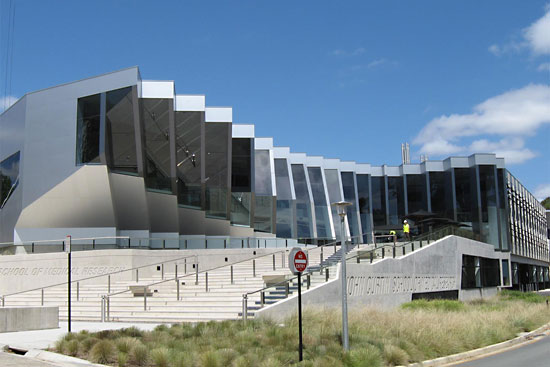ANU: Unboxing a passion for science
Marshmallows and spaghetti may not be the foundation of a delicious dinner, but together they can be used to create a structure strong enough to withstand the weight of a couple of textbooks.
That’s the premise of the spaghetti marshmallow construction challenge, one of 16 experiments The Australian National University (ANU) has sent to schools to celebrate National Science Week.
The STEM boxes initiative was created in 2020 by the ANU College of Science as a way to engage high school students with science during the pandemic-induced switch to remote learning.
This year’s boxes feature a range of goodies, including bouncy balls, aluminium foil, mints, sticky tape, and of course, packets of spaghetti and marshmallows. Many of the activities that use these items have been prepared by ANU academics. One challenge shows students how to make rock candy, and another involves using a box to measure the size of the sun. Schools participating in the project can access instructional videos and supplementary materials.
Sreenath Didugu is a Student Ambassador for the ANU College of Science and in his second year of a Bachelor of Science (Psychology)/Bachelor of Finance. He is the presenter of the instructional videos for the projectile motion activity, the overflowing surface tension experiment and the spaghetti marshmallow challenge.
“Science is everything from dropping a ball from the top of a building to the really complex stuff we study at ANU,” Didugu says. “I think we should always give everyone the opportunity to engage with it, even at the most fundamental level, and that’s what the STEM boxes are about – making it super accessible and super fun with these activities you can do with others or by yourself.”
The STEM boxes were sent to more than 130 schools around Australia this year, about 40 per cent of which are based in regional or remote areas. Boxes are also being delivered to schools in Vietnam, Indonesia and India.
“The best part about the boxes is that they’re enabling a lot of people to take part in hands- on practical science,” Didugu says. “People, especially at rural schools, who might not otherwise have been able to engage in science because of underfunding or a lack of resources.”
Didugu’s passion for science dates back to an early love of physics as a primary school student. Although he wanted to be an astrophysicist when he was younger, he’s now more interested in biological neuropsychology. He hopes to go into corporate consultancy or project management in the medical field once he finishes his degree.
“That’s the great thing about science,” Didugu says. “Because it’s constantly evolving, your relationship with it can evolve too. To be exposed to it opens up a whole new way of thinking that not only informs future science, but all aspects of future development. Science isn’t just about what we know but extrapolating what we don’t know too.”
It is thanks to the open mindedness he’s learnt through studying science that Didugu already has ideas about experiments for next year’s box.
“What if we boil the spaghetti and marshmallows together?” he jokes.

